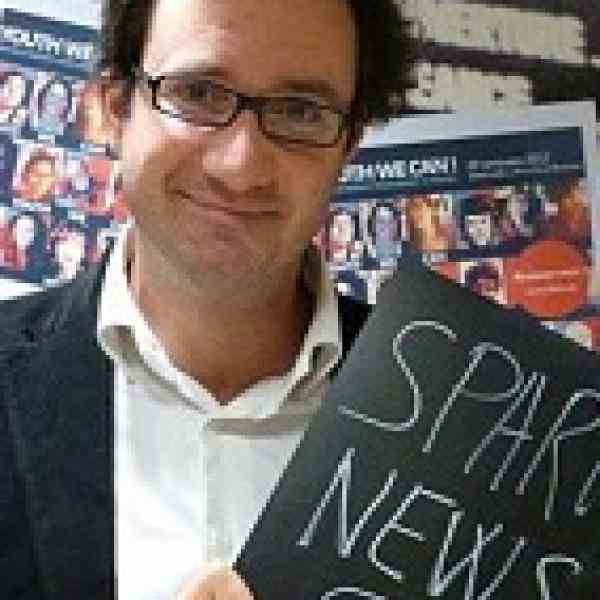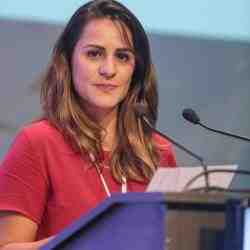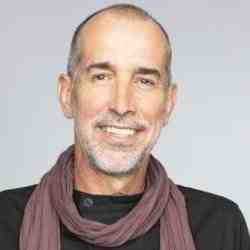Introduction
Christian is incentivizing the first global community of leading editors-in-chief to focus on solutions in the media, versus the traditional focus on failures and problems. By facilitating large scale content sharing, he is giving agency to major media players to systematically increase the frequency with which the masses are in contact with solutions-based stories, which in turn inspires and generates citizen changemakers.
L'idée nouvelle
Building on a shift in the press sector, Christian is developing the capacity of mainstream media to seek out and include solutions-based content in newspapers, and eventually television, at international scale. He is federating the first global community of editors-in-chief who commit to incorporate solutions-based stories into their newspapers through testing and championing models of content sharing. This pioneering community, made up of 40 editors-in-chief representing 50 countries, is tearing down traditional exclusivity boundaries within the media sector while reducing production costs for a newspaper industry faced with the challenge of identifying new business models in order to survive.
Christian has identified the right package of incentives and tools to motivate support and participation from press leadership, and create behavior change. He is demonstrating a sustainable revenue model for solutions-based journalism by reducing transaction costs related to writing about solutions in the news. First, he coordinates the sharing of solutions-based stories among his international network of editors-in-chief; several newspapers can thus leverage the same news stories simultaneously. He also provides a trusted online, open source platform that gives journalists access to easily-digestible videos representing a constant stream of story ideas. This in turn, reduces the time and cost for newspapers to identify and write about solutions. Finally, Christian is working on convincing advertising agencies to promote their products and services alongside solutions-based news, thus providing companies with a “socially good” image while developing a revenue stream that enables newspapers to focus on solutions.
By working top-down with the decision-makers of the mainstream press industry and uniting them in a global peer-to-peer network, Christian envisions a future where solutions-based journalism is embedded in the strategy of newspaper agencies. In this foreseeable future, consumers are increasingly demanding accessible solutions to inspire and foster their changemaking capabilities and the press sector is equipped with the necessary incentives and tools to respond to this demand.
Le problème
The field of solutions-based journalism has been on the rise over the past decades, with an increasing number of social entrepreneurs working to shift the media sector from an industry that showcases problems and failures in society to one that investigates and examines solutions. However, the nascent field still faces several barriers to scale.
First, solutions-based news often remains sporadic and opportunistic. Citizens are demanding more positive and inspiring news; however, mainstream press still considers “stories that sell” to be those that focus on problems and failures in society, such as war, violence, natural destruction and corruption. While alternative media outlets increasingly cover solutions, these magazines, websites and blogs remain outside of mainstream media and are lacking mass readership.
There is an emergence of models that focus on building the know-how and comptencies of journalists so they can effectively seek out and write high-quality investigative solutions-based journalism. The strategy of training and empowering individual journalists, one that is being led in the USA by David Bornstein, founder of Solutions Journalism Network, is a critical component in the shift toward a press industry that values solutions. However, it is not the complete solution. Another component is a more top-down approach that focuses on getting the buy-in and support from the press industry’s leadership and management, and doing this at an internatonal scale.
While it is increasingly evident that consumers and journalists are demanding a new type of news coverage, and that solutions-based stories do sell, no one has tested an international model. Many effective solutions-based journalism models are intervening at a national level; no global approach exists to unite media players and transcend geographies, languages and cultures. Coordinating such an effort at an international scale which would require convincing newspapers to see beyond their local markets and stakeholders to adopt a more global perspective. Looking at challenges to solutions-based journalism from an international lens could open up exciting and potentially system-changing solutions.
Finally, there is a challenge related to the budget and staff cuts occurring across the industry. In the midst of these cuts, solutions-based news stories are the first stories to go since their production can be considered timely and costly. Journalists do not always know where to find high-quality solutions, and once they find them, they may not know how to write about them. There is an opportunity to demonstrate a business model for solutions-based journalism that makes it easy and cost-efficient for the press industry.
La stratégie
Christian has worked in the field of solutions-based journalism for nearly a decade, gaining experience and insight into the major barriers that prohibit journalists from investigating and writing about solutions. For example, one barrier he identified was the sentiment among journalists that they are not recognized or respected when they write about solutions. In response, Christian initiated an annual prize in 2004 for French journalists writing about solutions in order to showcase and legitimize their work. Through this initiative and other experiments, Christian experienced success and failure, and saw again and again the major obstacles keeping the mainstream press industry from systematically embedding a solutions-based approach. One feedback that Christian continously heard from editors-in-chief was that while they were interested in a solutions-based approach, they did not have the time, budget or network to focus on solutions, and that they were not convinced solutions would sell. This led Christian to his core strategy: galvanizing an international movement of editors-in-chief, representing mainstream newspapers around the world. For the first time, these press leaders are no longer alone and isolated; instead, they have a global community of like-minded peers that agree to work together around the common goal of integrating solutions-based content into mainstream press. Christian has identified various incentives for this community of editors-in-chief. One is increased readership for little transaction cost. Each participating newspaper in his network writes two to three high-quality solutions-based articles, generating a minimum of 80 articles that can then be shared exclusively among the network. This gives editors-in-chief instant access to pick from a pool of stories, thus maintaining their editorial independence and choosing topics that will best engage their reader base. The incentive also works at the individual level; journalists are motivated to write high-quality articles to increase the chance that their articles will be chosen by other newspapers, thus giving them international exposure. Christian grounds this content-sharing strategy in an annual Impact Journalism Day (IJD) where he invites editors-in-chief to come together to devote a section of their newspapers to a specific topic. In 2013, for the first IJD, 22 mainstream newspapers from around the world participated by dedicating a 12-page insert to the topic of social innovation. Using industry measurement standards, Christian estimates a reach of 50 million readers. Participating newspapers included Le Monde (France), Times of India (India), La Stampa (Italy), Folha de sao Paulo (Brazil), Press of Canada (Canada), among others. This year’s IJD is planned for June 2014 and is focused on the theme of the “top 100 social innovations”. Christian has leveraged the event to attract 18 new editors-in-chief to his network, making a total of 40 in the network. This year, he asks participating newspapers to do a pre-call for social innovations in order to engage readers directly in identifying a pipeline of stories. Also this year, each story will end with the main needs of the social innovator, giving readers a concrete call to action. Christian is planning to touch 100 million readers during the 2014 IJD. To strengthen and grow the network of editors-in-chief, Christian invites them to come together on an annual basis for a face-to-face gathering to debrief from IJD and discuss additional ideas for collaboration, such as the development of a weekly chronicle. His vision for this international federation is to co-develop an embedded strategy to solutions-based content sharing. Christian plans to eventually invite in televisions networks, based on the same content-sharing concept. Christian further lowers transaction costs associated with publishing solutions-based news by feeding journalists with a trust-worthy, legitimate archive of solutions. This overcomes the barrier of mainstream newspapers not having immediate access to solutions content nor the resources to invest in building up new content. Christian’s open source platform invites anyone to upload short videos illustrating solutions to social challenges. Journalists access the site, and for free, search a topic of interest (e.g. water, human rights, social business) and geography of interest. Christian focuses on video as a medium because it is quick to digest and share. The platform currently has 23 different topics or “channels” and 1,600 videos. Christian is developing an expert rating feature that will allow experts on certain topics to rate videos on content quality. Christian funds his solutions-based journalism strategies by engaging corporations. Through the solutions he sources through IJD and his online platform, Christian provides a portfolio of social innovation to companies. For example, knowing that Veolia, a French-based service and utility company, was looking for low-cost energy solutions in developing markets, Christian was able to introduce Veolia to a social innovator identified through IJD working on exactly this issue. Veolia and the innovator now work together in partnership to roll out the energy technology in Africa. In this way, Christian has identified an economic value to corporations in the solutions he sources, which in turn enables him to offer his activities to the media industry free of charge. Christian’s organization is also funded by advertising revenue brought in through IJD. He plans to formalize his relationship with advertising agencies by convincing them to develop a quota of at least one percent of advertising dedicated to solutions-based journalism. Through this strategy, he is also ensuring a renenue stream for the newspaper industry as it increasingly embeds a solutions-based approach to journalism.
La personne
In 1998, at 25 years old, Christian with two friends decided to create a “World Hope Tour” – a tour around the world to meet the men and women creating positive social change. They identified sponsors and created a website to tell the stories of these individuals. He was particular struck by his experience in Chile, where he learned about microcredit and Mohammad Yunus’ impact far beyond Bangladesh. After his travels, Christian and his two travel companions wrote a book about their experiences, The World Hope Tour, which eventually became a best seller and was translated into several languages. Christian saw how the book activated its readers; particularly, a surge of readers went on to work in the microcredit sector. Christian saw the power of stories to raise awareness and create action among citizens.
In 2003, Christian co-founded Reporters of Hope in France where he experimented with several ideas to build the field of solutions-based journalism. Christian underwent a thorough analysis of the challenges and levers related to journalists’ ability to create solutions-based news content. Some of the barriers he noted included the fear that there is no interest from readers for solutions-based content. Reporters of Hope worked with Liberation, a daily French-based newspaper, to create an exclusive insert of solutions-based news stories – the worst day of sales became Liberation’s best sale of the year.
Christian also identified the barrier that journalists do not know where to easily find content, and when they do, the presentation of topics can be complicated. Reporters of Hope experimented with developing summary sheets on certain social topics that newspapers could purchase to further understand the problem at hand and possible solutions. However, the FAQ sheets did not gain traction as newspapers would not pay for them and spend the time reading the lengthy summary. From his successes and failures, Christian has been able to identify an optimized set of solutions, which led him to develop his approach for Sparknews, the organization he founded in 2011 and which he currently leads.




